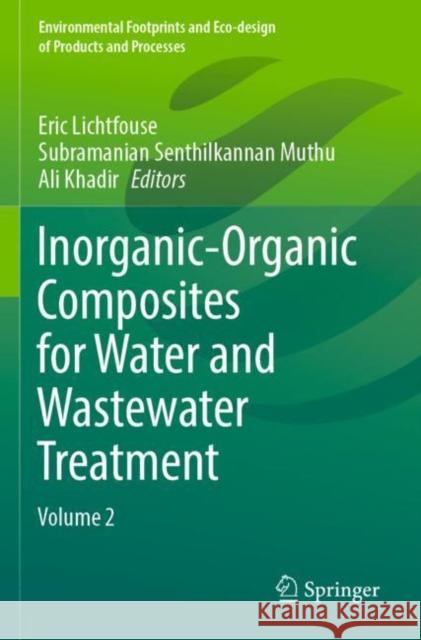Inorganic-Organic Composites for Water and Wastewater Treatment: Volume 2 » książka
Inorganic-Organic Composites for Water and Wastewater Treatment: Volume 2
ISBN-13: 9789811659300 / Angielski / Miękka / 2022 / 323 str.
Inorganic-Organic Composites for Water and Wastewater Treatment: Volume 2
ISBN-13: 9789811659300 / Angielski / Miękka / 2022 / 323 str.
(netto: 345,02 VAT: 5%)
Najniższa cena z 30 dni: 346,96
ok. 16-18 dni roboczych.
Darmowa dostawa!
This second volume on ''Inorganic-Organic Composites for Water and Wastewater Treatment'' reviews research findings on advanced materials and methods for purification. Considering the fact that new emerging pollutants are released into the environment and water bodies, it is necessary to develop more advanced techniques in order to treat them. The utilization of metal – organic framework in view of applications, synthesis, properties like adsorption, characterization of the electronic and geometric aspects, and hybrid systems is reiewed in this book, and the advantages/disadvantages, shortcomings including future prospects associated with metal-based nanoparticles and nanocomposites for water decontamination are discussed. In addition, the use of carbon quantum dots, supramolecular ion-exchange resins, multifunctional composite aerogels, algal biomass valorization and titania-containing composites in treatment processes are also presented.
This second volume on ''Inorganic-Organic Composites for Water and Wastewater Treatment'' reviews research findings on advanced materials and methods for purification. Considering the fact that new emerging pollutants are released into the environment and water bodies, it is necessary to develop more advanced techniques in order to treat them. The utilization of metal – organic framework in view of applications, synthesis, properties like adsorption, characterization of the electronic and geometric aspects, and hybrid systems is reiewed in this book, and the advantages/disadvantages, shortcomings including future prospects associated with metal-based nanoparticles and nanocomposites for water decontamination are discussed. In addition, the use of carbon quantum dots, supramolecular ion-exchange resins, multifunctional composite aerogels, algal biomass valorization and titania-containing composites in treatment processes are also presented.











